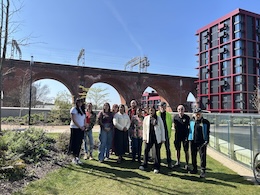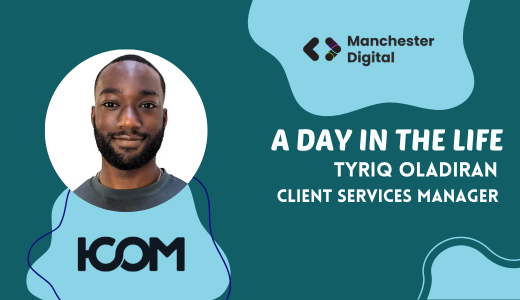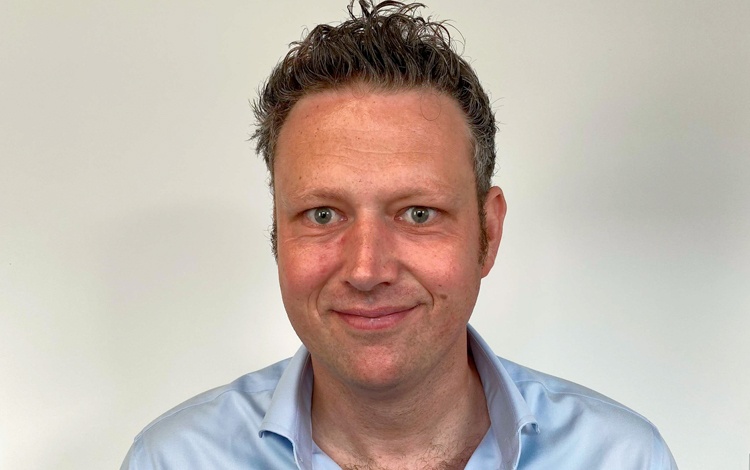It's an incongruous sight, some of Buckingham Palace's most opulent reception rooms playing host to the fastest-rising stars of the UK tech industry. But under an impressive chandelier and overlooking the palatial gardens, a modest table of wares is being nervously demonstrated by some of the team behind Raspberry Pi, the Cambridge-based mini-computer project.
Raspberry Pi has nearly sold 2m units, co-founder Eben Upton explains, outselling the BBC Micro, outselling the Amstrad and rapidly closing in on Clive Sinclair's iconic Spectrum computer.
"I've lost count of the number of people I've met in the tech industry who started out on a BBC," says the Duke of York, who's in a lively mood, getting hands-on with the tech demonstrations.
He appears fully versed with the Raspberry Pi already. "What people are applying the Raspberry Pi to outstrips any of the things you intended it for, doesn't it?" he says, surveying a table showing the mini-computers running a game of Minecraft and Space Bear – a computer-equipped teddy bear that relived Felix Baumgartner's near-space jump in August 2013.
More than 350 of the UK's most successful and most promising technologists have been invited to Buckingham Palace by the Queenand the Duke of York for Tech at the Palace. As a special treat, guests are allowed to keep their mobile phones with them so they can tweet about their power networking experience.
Some of this forward thinking might be down to the Duke of York himself, who appears very well versed in the handful of tech companies presenting here. He's promoting his own awards scheme launched in March, iDEA, which has set the ambitious target of providing one million young people with support and skills around digital entrepreneurship. Launched in March 2014, the scheme is oversubscribed in its trial phase, says the duke, with 1,000 young people signed up and a waiting list. Musician Will.I.Am, whom he met at a Royal Society of Engineering event, is a launch partner, alongside the creators of the project the Nominet Trust.
Having recently ruled out a return to his role as special representative for trade and industry, what does the iDEA scheme mean to him? The shadow of the Duke of Edinburgh's own 58-year-old awards scheme looms large, but he quickly dismisses the suggestion that iDEA is any attempt to create the same kind of legacy.
"No, never. Imitation might be the greatest form of flattery, so I stole that from him freely," he said. "But this is about giving young people the digital skills they need for the 21st century … I don't care if these young people come from Hackney, Harvard or Oxford – this is for anybody, just like the devices that are ubiquitous … This is not about me."
In promoting British tech, the duke says he "unashamedly" pushes UK tech companies in the US, while telling them to make sure they come back. "It's not wrong to compare ourselves to Silicon Valley but the ecosystems are different. The east coast of the US and London are where the financial capitals are, and the thought process around risk is about financial risk, not entrepreneurial risk." Veteran investor Marc Andreessen, he says, told him that the UK must encourage its own ecosystem and let it grow organically.
In the realm of tech startups, almost anything and everything goes – an unorthodox industry that might well appeal to the Duke of York. Even iDEA he describes as operating like a startup. "We have no idea where this is going or where all the pieces are going to come from," he says, gleefully. "We are talking to government because they think we are, perhaps, a little further along in this journey than we actually are, but we want to come up with a solution."
This could mean a collaboration between iDEA and the Government Digital Service, the government's award-winning digital design team, to build a site that can show off the achievements of iDEA's young people.
The significant cultural challenges of the digital age are not lost on the duke, who talks to the right to be forgotten case. "The law around the postal service grew up very, very slowly, so legislation could keep up with it. But the internet has grown so fast that no legislator can keep up with it. It's going to be an ethics problem far more than a legislative problem, and though 99% of the world's population are ethical, you're going to have to find the very small minority and make sure they use [these services] wisely and correctly."
And what of privacy and sharing data with companies who may not be ethical? "You're asking the wrong person, because as a member of the royal family we have already given up our right to privacy, with you guys [the press] around," he said. "It's something that's happening and people are going to have to get used to it."
Some of the UK's smartest but lesser known technology companies were exhibiting their products, including Bristol OC Robotics, which manufacturers 'snake-arm robots' for work in confined, hazardous spaces including nuclear decommissioning, and Intelligent Textiles of Surrey, which is working with the US department of defence to develop uniforms that can heat the body, carry batteries or include body armour.
Annika Small, CEO of the Nominet Trust, had been battling to gain attention for social projects that use technology to help people and provide new skills. Its Task Squad project matches capable but inexperienced young people looking for work with small businesses who can offer short, paid assignments. Another project, Speakset, adds a video call feature to TV set top boxes which allows the elderly to speak to family, or to services including their GP.
"We have been trying to build support across the industry, in local businesses that play a key part, with both formal and informal educators and policy makers. We know that there is a real disconnect with today's curriculum, with kids who don't identify as entrepreneurs and often struggle in formal education," she said. "We set a very ambitious target of getting one million young people building digital entrepreneurship skills, but we have to start with the things that interest them – music, fashion and games – and show them that it's not all about programming and coding. These are the arts and crafts of the 21st century." It won't hurt that the steering committee for the iDEA scheme includes Will.I.Am, entrepreneur and model Lily Cole and Michael Acton Smith, founder of the globally successful Moshi Monsters game.
Eben Upton said the UK tech industry has a powerful base of high quality engineers and academic research, investment funding and business networks, but that the government could do more regionally.
"A lot of effort has been put into east London, but there is more that could be done to sustain the regional clusters we already have in Cambridge, Oxford and Bristol," he said. "Those clusters of tech businesses feed into the local economies and are very powerful. "Funding tech startups is what the venture capital firms are for. Instead the government should be funding the infrastructure network, around which startups will be built."
Source: Guardian









